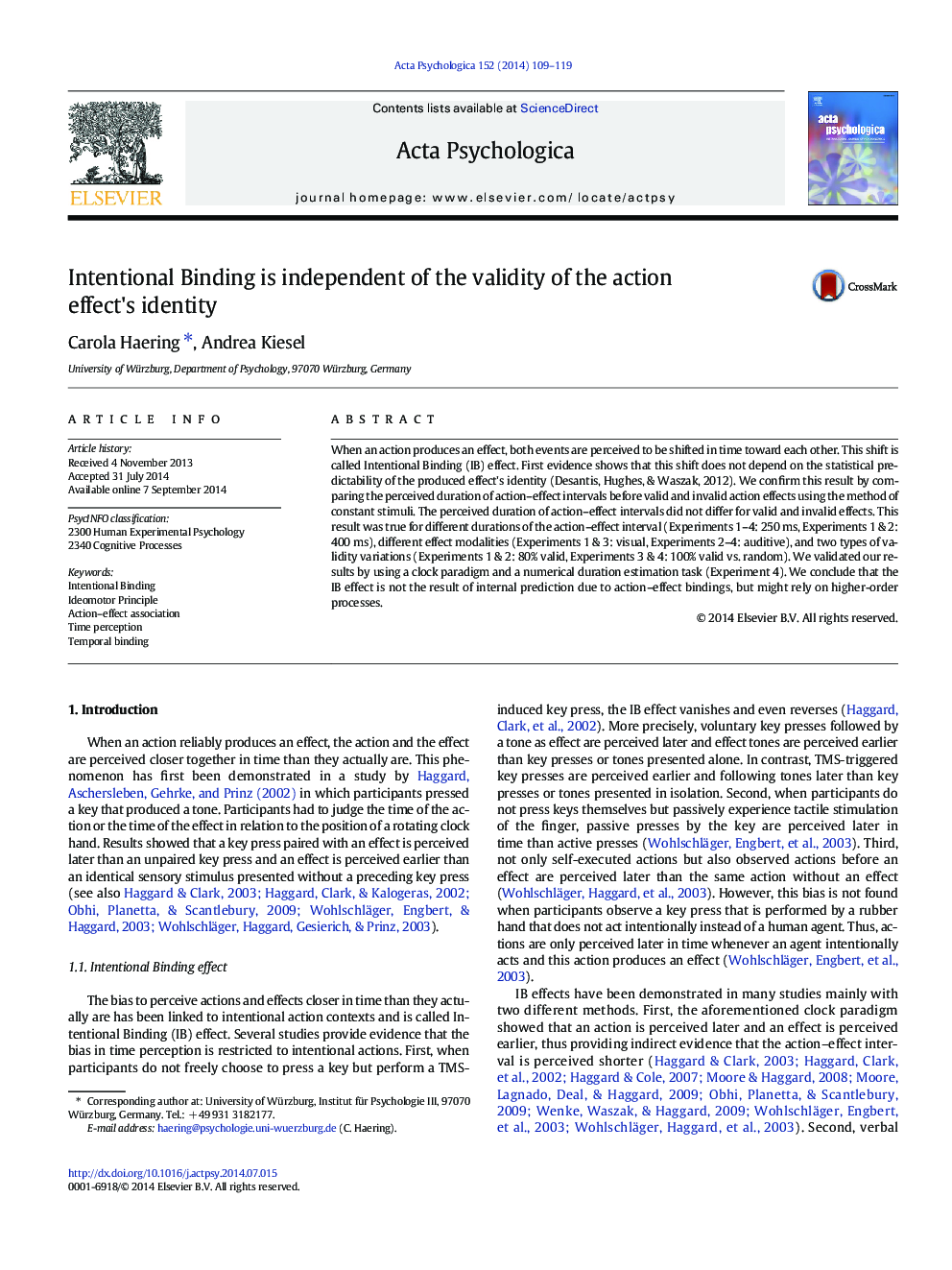| Article ID | Journal | Published Year | Pages | File Type |
|---|---|---|---|---|
| 919792 | Acta Psychologica | 2014 | 11 Pages |
•Action and contingent effects are perceived close in time.•The Intentional Binding effect does not depend on the validity of the effect.•Intentional Binding effects do not depend on acquired action–effect associations.
When an action produces an effect, both events are perceived to be shifted in time toward each other. This shift is called Intentional Binding (IB) effect. First evidence shows that this shift does not depend on the statistical predictability of the produced effect's identity (Desantis, Hughes, & Waszak, 2012). We confirm this result by comparing the perceived duration of action–effect intervals before valid and invalid action effects using the method of constant stimuli. The perceived duration of action–effect intervals did not differ for valid and invalid effects. This result was true for different durations of the action–effect interval (Experiments 1–4: 250 ms, Experiments 1 & 2: 400 ms), different effect modalities (Experiments 1 & 3: visual, Experiments 2–4: auditive), and two types of validity variations (Experiments 1 & 2: 80% valid, Experiments 3 & 4: 100% valid vs. random). We validated our results by using a clock paradigm and a numerical duration estimation task (Experiment 4). We conclude that the IB effect is not the result of internal prediction due to action–effect bindings, but might rely on higher-order processes.
